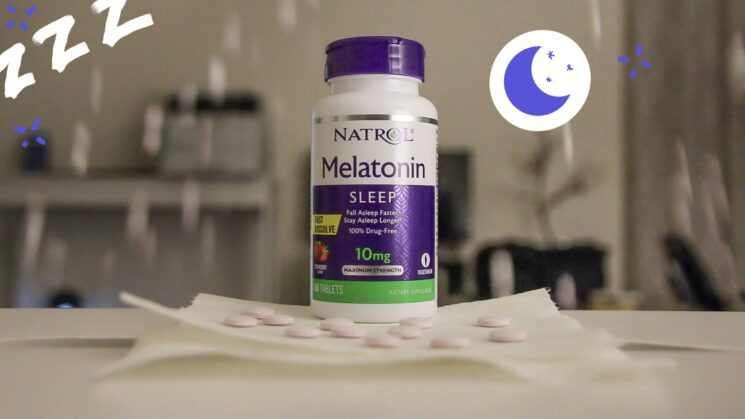
By Caroline Mora
These days, melatonin supplements are a common way to treat mild insomnia and other common sleep disorders that target your circadian rhythm. The circadian rhythm is the natural pattern a body follows on a 24-hour cycle. This rhythm will determine the start or end of different bodily functions such as alertness, drowsiness, appetite and body temperature. The keys to maintaining a healthy sleep schedule are daily exercise, getting enough nutritious food and being exposed to natural light for at least 25 minutes a day.
However, if you are afflicted with a sleep disorder like insomnia, where you have trouble falling asleep, you may have found that taking melatonin supplements might entice the sandman to visit you more often.
Melatonin: What is it?
Melatonin is a hormone that is released in your brain in response to low light. It’s a signal that lets you know it’s time to rest and regulates your sleep-wake cycles. Someone might take supplements of this hormone if they are experiencing trouble falling asleep, staying asleep, anxiety, or other short-term sleep-wake cycle disorders. Supplements come in the form of gummies, pills, liquid and natural forms from the pineal glands of animals.
A normal dose of melatonin is about two milligrams and should be taken one to two hours before bedtime up to three days a week at first. Melatonin is offered in one of two ways: as a slow release or as an immediate release. It should be taken around three hours after eating, as food can prevent the absorption of melatonin in your body. You may begin to take supplements every night for upwards of about two months before you go to see a doctor. Melatonin supplements are not meant to be a long-term fix, to what should be a short-term problem. Sometimes all it takes is adjusting your diet or a daily routine to help you fall asleep easier.
Positive Effects
Melatonin supplements aren’t only for sleep-related issues, although that is the most common use of this hormone. In addition to being used as a sleep aid, it may improve cortisol levels, blood pressure and immune response. It can also be used to give temporary relief to seasonal depression symptoms as well as improve eye health. Recently, there has been an increased interest in using melatonin to treat or prevent different neurological disorders, but the testing still needs to be done. There are many benefits to taking these hormone supplements, but there are also many negative side effects that you might not be aware of.
Negative Effects
Some minor side effects of taking melatonin are daytime drowsiness, headache and dizziness. The side effects may become more severe as you increase your dosage. Melatonin is categorized as a dietary supplement — it does not undergo the same regulatory process and quality control that other prescription medications like morphine or oxycodone would. Therefore, there is a higher risk of “overdose” or inappropriate use. The labels may not be consistent either, with incorrect dosing information and inaccurate active ingredient information. There is also a lack of pharmacovigilance or post-marketing surveillance done with these types of products, so any serious side effects are not likely to be reported.
Melatonin is often prescribed or recommended to people 50 years of age or older, as with that comes an increased risk of adverse side effects due to mixing medications. Melatonin is not compatible with oxycodone, citalopram or nortriptyline, as it results in a severe loss of consciousness. In people taking warfarin, a medication to decrease the risk of blood clots, in combination with melatonin, they might experience increased bleeding. You should not take melatonin in combination with other types of sedatives because you may notice a decrease in psychomotor performance.
Since melatonin is only meant to be taken for a short period, the longer you take it, the more serious the side effects might become. When consuming the hormone for four weeks or longer at a five-milligram dosage, you might experience higher blood pressure or heart palpitations.
Conclusion
Overall, when taken intermittently and not combined with other medications, melatonin is relatively pretty harmless. The real problems arise when you consider that melatonin is a dietary supplement and not a medication, so it is not regulated in the same manner as medication. Your dosage, active ingredient and contamination percent could differ from batch to batch. Always buy melatonin, and other supplements, from a reputable company to be more confident that what you’re ingesting is good quality. Simply checking your dosage, active ingredients and following proper consumption labels could be the difference between a good night’s rest and a stomach ache.





